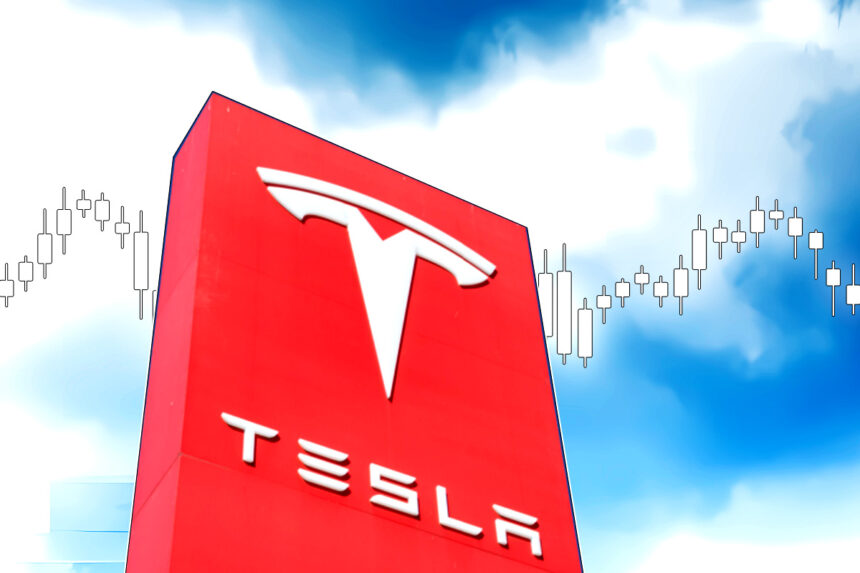Tesla Stock Weakens Amid Possible EV Credit Cuts and Recalls
Tesla Stock– Tesla (TSLA) shares experienced a notable decline as the stock’s post-election rally faded, primarily due to concerns over the potential reduction of electric vehicle (EV) tax credits under the incoming Trump administration. This setback came after a Reuters report suggested that the new administration may propose eliminating the $7,500 federal tax incentive for EV buyers, a key feature of the Biden administration’s Inflation Reduction Act.
Tesla’s stock closed down 5.7% on Thursday, following the Reuters report, and continued to slip in early trading on Friday, with shares down over 1% in premarket activity. Despite this recent pullback, Tesla’s stock remains up over 25% year-to-date, following a challenging first half of 2024. Investors are still grappling with the potential shift in government policy, which could have significant implications for Tesla’s growth prospects.
Trump Administration May Cut EV Tax Credit
The Reuters article, published on Thursday, revealed that the incoming Trump administration is considering eliminating the $7,500 EV tax credit, a key component of the Biden administration’s push to accelerate the adoption of electric vehicles. The sources quoted in the report indicated that Trump’s energy policy transition team had been discussing the potential move as part of a broader tax reform package. Tesla, along with other automakers, has benefitted from this subsidy, which helps reduce the cost of electric vehicles for consumers and incentivizes the transition to cleaner energy.
The report also mentioned that Tesla representatives who had been in touch with Trump’s team supported the idea of ending the subsidy, which has been a point of contention in the industry. While some automakers have lobbied for the continuation of the EV tax credit, others believe it distorts the market and may not be necessary in the long run, especially as the EV market matures.
If the credit were to be eliminated, it could pose a challenge for Tesla and other electric vehicle manufacturers, especially in the short term. The incentive has helped Tesla achieve strong sales in the U.S. by making its vehicles more affordable for a larger pool of consumers. The potential loss of the subsidy could affect the company’s pricing strategy and its competitiveness in the domestic market.
The “Trump Trade” and Wall Street’s Bullish Outlook for Tesla
The post-election surge in Tesla’s stock had been fueled by optimism around the potential impact of a Trump administration on the company’s business. As one of the most prominent supporters of Trump in the tech and automotive sectors, Elon Musk has long been viewed as a key figure in shaping the future of Tesla under a Republican administration. Musk’s support for Trump, which included significant financial contributions to Republican campaigns, had initially bolstered Wall Street’s sentiment toward Tesla.
On Monday, Tesla shares hit their highest point since early 2022, driven by expectations that a Trump presidency could lead to less regulatory oversight and faster approval for autonomous driving and artificial intelligence (AI) initiatives. Analysts at Wedbush, a leading investment firm, raised their price target for Tesla to $400 per share from $300, citing the potential for rapid growth in Tesla’s autonomous vehicle and AI capabilities under a Trump administration.
We are raising our price target on Tesla to $400 from $300 as we believe the Trump White House win will be a game-changer for the autonomous and AI story for Tesla and Musk over the coming years, Wedbush analysts led by Dan Ives wrote in a client note. According to the firm, the new administration’s less stringent regulatory environment could expedite Tesla’s ambitious plans for Full Self-Driving (FSD) technology and artificial intelligence integration, which they believe could add up to $1 trillion in value to the company’s stock.
Tesla Faces Challenges Amid Growth and Regulation
Despite the optimism around Tesla’s future growth potential, the company continues to face challenges, particularly concerning regulatory hurdles and ongoing product recalls. Tesla has been dealing with a series of recalls this year, including the latest one involving 2,400 Cybertruck vehicles. The recall was due to a faulty part that could result in a loss of power, increasing the risk of a collision. This marks the sixth recall for the Cybertruck in 2024 alone, underscoring ongoing quality control and safety concerns that have been a point of contention for Tesla’s critics.
While the company’s long-term growth story remains intact, the combination of regulatory uncertainty, product recalls, and the potential end of the EV tax credit has caused some volatility in its stock. Investors are closely monitoring how these factors could impact Tesla’s bottom line, especially as the company aims to maintain its market leadership in the electric vehicle sector.
In conclusion, Tesla’s stock is facing some headwinds as concerns over the potential elimination of EV tax credits and ongoing product issues weigh on investor sentiment. However, despite these challenges, Wall Street remains optimistic about the company’s long-term prospects, with some analysts projecting significant growth as Tesla continues to lead the way in autonomous driving and AI innovation. The final outcome of the Trump administration’s stance on EV incentives will play a crucial role in shaping Tesla’s future performance and its ability to navigate a rapidly changing market.




Leave a Reply